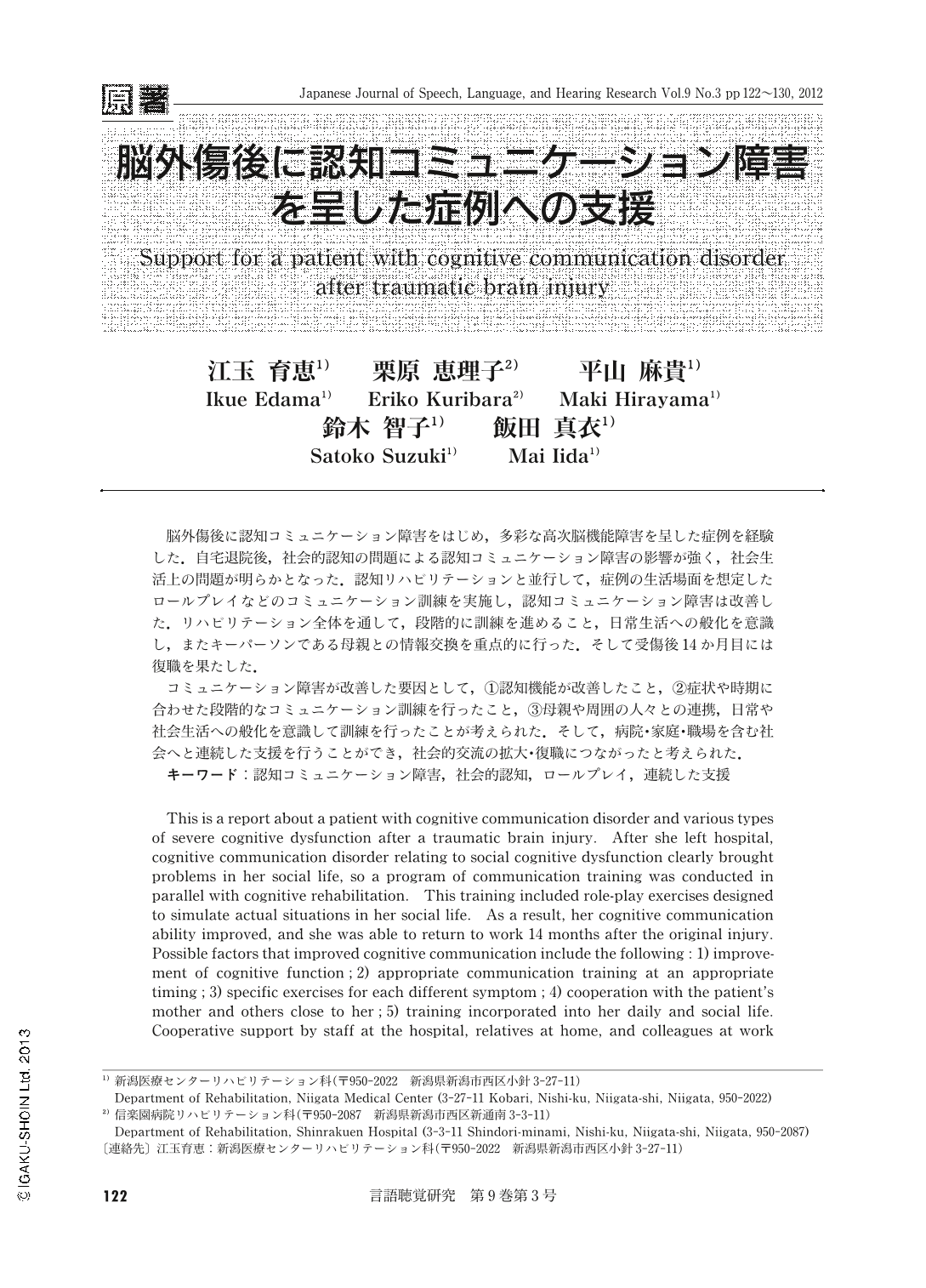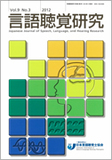Japanese
English
- 有料閲覧
- Abstract 文献概要
- 1ページ目 Look Inside
- 参考文献 Reference
脳外傷後に認知コミュニケーション障害をはじめ,多彩な高次脳機能障害を呈した症例を経験した.自宅退院後,社会的認知の問題による認知コミュニケーション障害の影響が強く,社会生活上の問題が明らかとなった.認知リハビリテーションと並行して,症例の生活場面を想定したロールプレイなどのコミュニケーション訓練を実施し,認知コミュニケーション障害は改善した.リハビリテーション全体を通して,段階的に訓練を進めること,日常生活への般化を意識し,またキーパーソンである母親との情報交換を重点的に行った.そして受傷後14か月目には復職を果たした.
コミュニケーション障害が改善した要因として,①認知機能が改善したこと,②症状や時期に合わせた段階的なコミュニケーション訓練を行ったこと,③母親や周囲の人々との連携,日常や社会生活への般化を意識して訓練を行ったことが考えられた.そして,病院・家庭・職場を含む社会へと連続した支援を行うことができ,社会的交流の拡大・復職につながったと考えられた.
This is a report about a patient with cognitive communication disorder and various types of severe cognitive dysfunction after a traumatic brain injury. After she left hospital, cognitive communication disorder relating to social cognitive dysfunction clearly brought problems in her social life, so a program of communication training was conducted in parallel with cognitive rehabilitation. This training included role-play exercises designed to simulate actual situations in her social life. As a result, her cognitive communication ability improved, and she was able to return to work 14 months after the original injury. Possible factors that improved cognitive communication include the following: 1) improvement of cognitive function;2) appropriate communication training at an appropriate timing;3) specific exercises for each different symptom;4) cooperation with the patient's mother and others close to her;5) training incorporated into her daily and social life. Cooperative support by staff at the hospital, relatives at home, and colleagues at work resulted in the increase of the patient's social communication and eventually her return to work.

Copyright © 2012, Japanese Association of Speech-Language-Hearing Therapists. All rights reserved.


